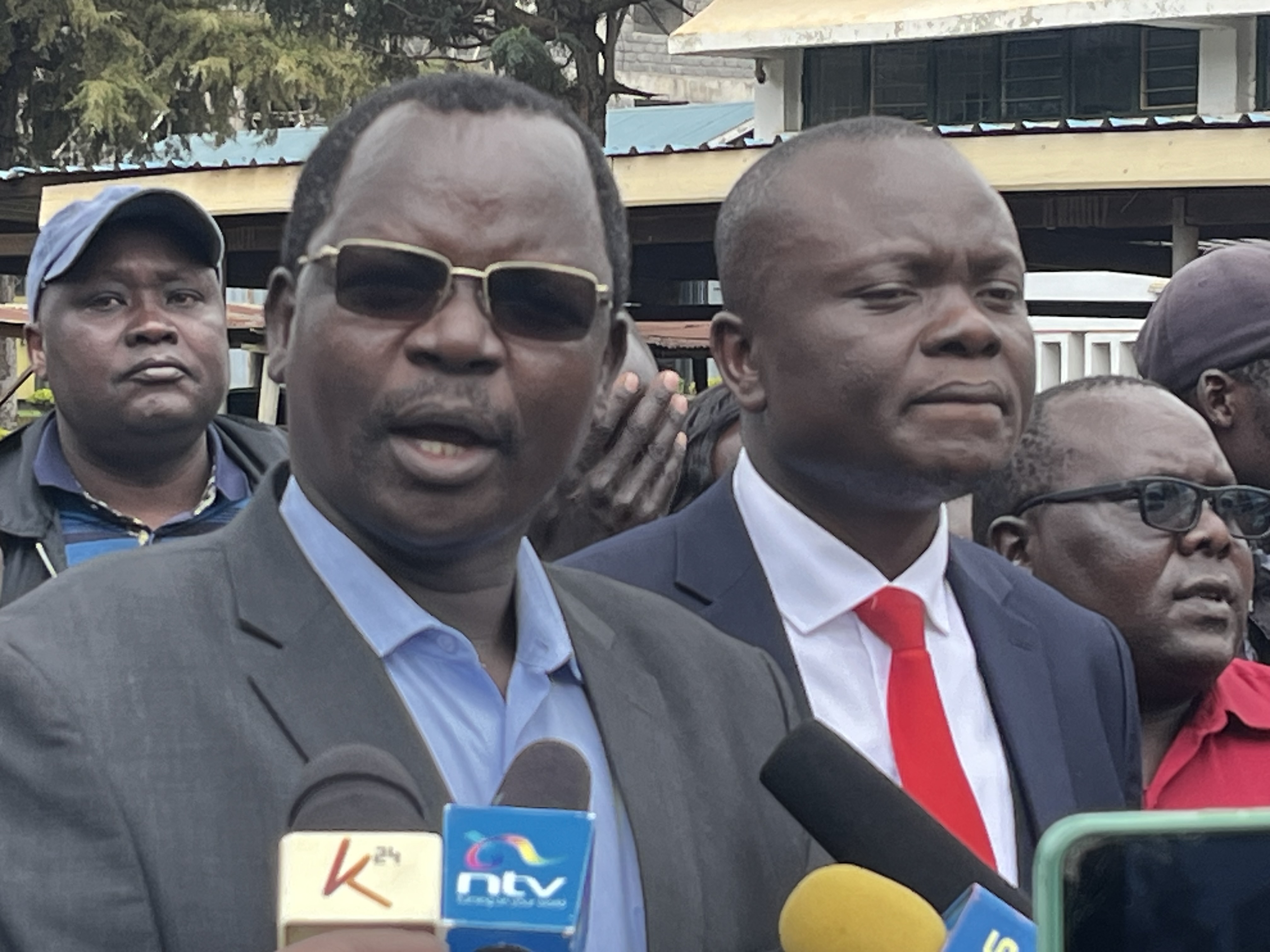

A court in Eldoret has acquitted six former employees of West Pokot county who were charged with corruption.
They were senior employees during the administration of former Governor John Lonyangapuo.
The six, together with a cereals trader, were charged over the alleged illegal purchase of 5,000 bags of relief maize worth Sh18 million. The offence was committed between October 11, 2017 and July 2018.
Former county secretary Mike Parklea, Solomon Mereng, Alice Chepkosgei, Joseph Lolamtumtum, Elvis Mwanga, Titus Mayech and trader Margaret Tuitoek were arrested and charged by the EACC.
Principal magistrate Richard Odenyo on Monday acquitted the six on grounds including lack of sufficient evidence by the prosecution.
“It was also evident that the county executive approved the purchase which was then done as per procedures,” Odenyo said.
He also noted that the accused did not breach any laws during the purchase.
Lonyangapuo, who was a witness in the case, joined the former officials who celebrated outside the court after being freed.
Their lawyers Richard Maina and Peter Wanyama also welcomed the court decision after six years of hearing.
“At last justice has been done and our clients have been proved right,” Maina said.
Wanyama said the EACC had dramatised the arrest of the officers six years ago without any tangible evidence against them.
“We have proved to the court that no money was lost and the maize was actually delivered,” Wanyama said.
Lonyangapuo said he was excited that his former employees had been acquitted because they did nothing wrong.
The former county boss had last month testified before the court in defence of the decision by his administration to purchase relief maize valued at over Sh17 million for famine victims in the county at the time he was in office.
Lonyangapuo told the court that he was forced to allow the purchase through a process that disregarded some procedures because the victims were on the verge of death.
“We were at a point where the starving family would even have eaten us if we didn’t provide food for them,” he said.
The court further heard that the governor convened a cabinet meeting which approved the purchase of maize from the neighbouring Trans Nzoia county through direct methods to save the starving families.
“Your Honour, I decided to bypass the procurement rules and purchased the maize through direct methods for my people who were on the verge of dying due to severe famine and drought. Those victims were even ready to slaughter us for food and we had to act quickly,” said Lonyangapuo.
“We acted in the manner in which we did by tendering for the purchase of the maize through direct methods owing to the prevailing circumstance on the ground by then. The victims of famine were suffering and were in dire need of aid.”
Lonyangapuo also said that he used photocopies of payment vouchers to pay the suppliers after officers from anti-graft authority who raided his office took off with all original documents.
“The EACC officers came knocking on our offices before taking away original copies of payment vouchers leaving us with no option but to use photocopies of the same to pay the suppliers their money,” he said.
The former county boss said it wasn’t wise to delay the payment and yet the suppliers had already delivered the maize to the National Cereals and Produce Board depots in the region, pending distribution.
“We just used the photocopies of the original documents to process payments for those who had delivered maize needed to save lives at the time.”











